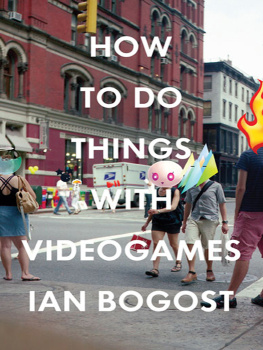

2019 Jamie Woodcock
Published in 2019 by
Haymarket Books
P.O. Box 180165
Chicago, IL 60618
773-583-7884
www.haymarketbooks.org
ISBN: 978-1-60846-867-6
Distributed to the trade in the US through Consortium Book Sales and Distribution (www.cbsd.com) and internationally through Ingram Publisher Services International (www.ingramcontent.com).
This book was published with the generous support of Lannan Foundation and Wallace Action Fund.
Special discounts are available for bulk purchases by organizations and institutions. Please call 773-583-7884 or email for more information.
Cover design by Rachel Cohen.
Text design by Jamie Kerry.
Library of Congress Cataloging-in-Publication data is available.


The ideas for this book began as an article in the Journal of Gaming and Virtual Worlds. It has been rewritten, expanded, and developed into the present form here.

I would like to start by thanking John McDonald at Haymarket for encouraging me to turn my ideas about Marxism and videogames into a book. That conversation over the stall at the New York Historical Materialism conference was the start of a great collaboration, and I would also like to thank Nisha Bolsey and the rest of the team at Haymarket for their support, as well as Brian Baughan for copy editing the book.
This book could not have been written without the support of Lydia Hughesnot only her encouragement throughout the entire process, convincing me that the book was worth doing, and finishing, but also her help with the crunch points during the process. The irony is not missed that I crunched while writing about how bad such a practice is at work.
I would like to thank my parents for their support, as well as for letting me play videogameswho would have thought that those experiences would turn into a book later? My dad encouraged me and introduced me to my first videogames. Many of these came through his friend Jim, so thanks for all those floppy disks.
The book owes a huge debt to my comrade Solvi Goard, who not only played videogames with me but also talked throughat lengthmany of the ideas that Ive put forward here.
Working with Mike Cook and Mark Johnson proved an invaluable experience for understanding how videogames are actually made, with thanks to both for their (often very patient) explanations. Thanks also to Mike for letting me test out some of the ideas (well, at least the slide of Marxs face on a robot) at the hugely inspiring PROCJAM conference.
An earlier version of the argument in this book was published in a special issue of the Journal of Gaming and Virtual Worlds, and I would like to thank both Lars and Graeme for all their feedback. I was also greatly inspired by Nick Dyer-Witheford and Greig de Peuters Games of Empire, a book I returned to regularly while writing. It has also been great talking with both Nick and Greig during trips to Canada, as well as Daniel Joseph, whose work too has been really useful.
The politics of this book have been deeply shaped by my editorial comrades Lydia Hughes, Seth Wheeler, Callum Cant, Achille Marotta, and Wendy Liu at Notes from Below. The special issue on technology by Wendy and Marijam (as well as Left Left Up) helped me to think through many of the issues for the book. Sai Englert provided invaluable pun support (Im sorry none of them made it into the title!).
Finally, I would like to thank Game Workers Unite (GWU) and particularly its UK branch. Sitting in your meetings and talking through what organizing should look like today has been hugely inspiring (and also a bit difficult to write aboutin a good wayas things are moving so fast!). I would like to thank Dec, Beck, Karn, and Austin (among many others). You have all shown that there is clearly no such thing as unorganizable workers. This book is dedicated to all of you.

Popular culture is one of the sites where this struggle for and against a culture of the powerful is engaged: it is also the stake to be won or lost in that struggle. It is the arena of consent and resistance. It is partly where hegemony arises, and where it is secured. It is not a sphere where socialism, a socialist culturealready fully formedmight be simply expressed. But it is one of the places where socialism might be constituted. That is why popular culture matters. Otherwise, to tell you the truth, I dont give a damn about it.
Stuart Hall, Notes on Deconstructing the Popular
One of my earliest memories of videogames is sitting in front of a computer, trying to figure out how to work the MS-DOS operating system. A friend of my dads gave him games, loaded onto floppy disks, to pass along to me. Sometimes they came in plain paper packaging, other times in larger cardboard boxes, filled with paper manuals and other ephemera. I would write down the instructions for playing different games on Post-it notes, which became scattered around the screen. I remember thinking that the games required some expertise, that you had to learn to play them.
Those early games, pixelated and colorful, were a route into another world for me. I directed Lemmings, using different commands to try and stop any from falling off cliffs. I ventured out from the crashed spaceship of Commander Keen, eagerly investigating the games world. I also, for reasons I never quite understood, explored the Fantasy World of that anthropomorphized egg with a hat, Dizzy. Then there were the videogames like the platformer Duke Nukem, in which I shot my way through levels. All of these games were passed along by someone who programmed computers for a living.
I was taught to play Tetris on a Nintendo Game Boy while sitting on the staircase of a family friends home. Another friend taught me to play console games, introducing me to Sonic, Mario, and others. I remember sitting on the floor, poring over the paper manuals while Civilization installed, wondering whether the installer had crashed or if the loading bar could really take so long. I felt at the time that Civilization was not just a game but that it had educational valueanother reason for just one more turn.
My paper manual for Street Fighter Alpha 2 had all the pages torn out, so I had to try and learn the moves with friends while we battled it out in front of the TV. I built sprawling metropolises in SimCity, astonished that I could then fly a helicopter through them in SimCopter. Baldurs Gate was the closest I ever got to Dungeons & Dragons: I would meet with friends to compare notes on how the characters and story developed. Moving on from those games, I explored postapocalyptic wastelands in Fallout and played for the evil side in Dungeon Keeper.
Next page
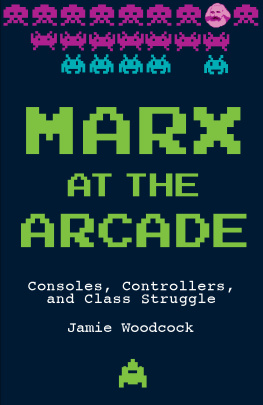

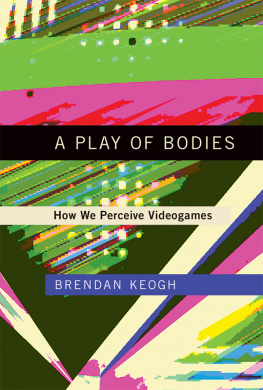
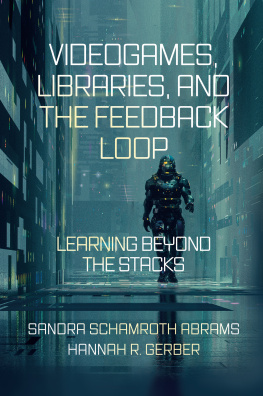
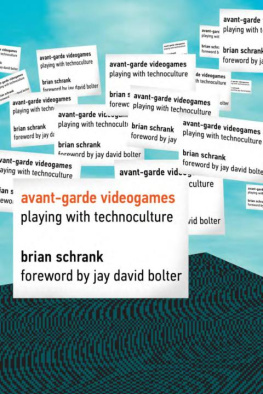

![Chris Bateman [Chris Bateman] - Beyond Game Design: Nine Steps Toward Creating Better Videogames](/uploads/posts/book/119409/thumbs/chris-bateman-chris-bateman-beyond-game-design.jpg)
